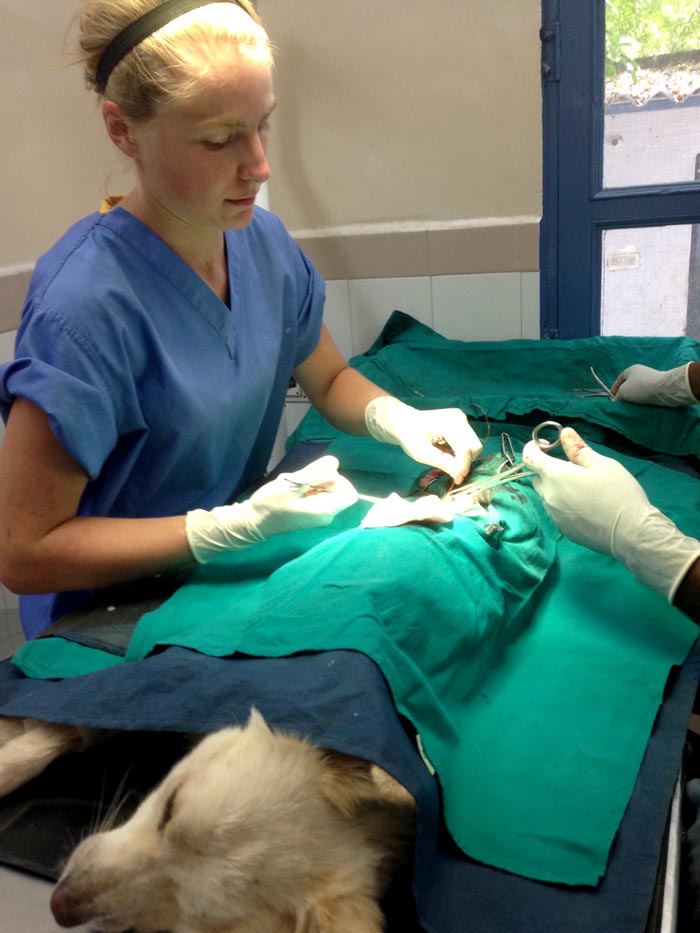A few weeks ago, I finished my last final year rotation, and I’m days away from finishing my last ever EMS placement – where has the time gone?!
Everybody warned us final year would fly by, but this is ridiculous. Surely it can’t be almost a year since I sat in one of the small animal hospital meeting rooms, practically shaking with fear on my first day of emergency medicine – my first day of final year – and yet, here I am.
 With 12 weeks of preclinical and 26 weeks of clinical EMS under my belt, I’ve picked up a few handy tips along the way.
With 12 weeks of preclinical and 26 weeks of clinical EMS under my belt, I’ve picked up a few handy tips along the way.
On the whole, I’ve had some fantastic placements, seen some incredible things and travelled to a number of far-flung destinations, but (as ever), with hindsight, there are a few things I may have done differently.
So, for those students in their earlier years, here are some things to bear in mind.
Plan your placements
This sounds obvious, and the majority of placements will need to be planned well in advance (often a year or more), purely due to practice availability. But, if you have the luxury of choice (if the practice has lots of free dates), really think about what you want to achieve before final year, and try to have at least a taste of small animal, farm and equine before rotations, if possible.
I got to final year and realised I’d had very limited experience in farm practice, so felt a bit lost at the beginning of the farm rotation. However, having now done more farm EMS – which accidentally ended up all happening at the end of final year – I feel so much more confident.
Also, think about how much EMS you want to do at which stages of the course.
You have to spread it out and start somewhere, and while you need to give yourself some downtime in final year, I think you also get a lot more out of placements the further through the course you are.
Listen to recommendations
Talk to people in your year and in the years above.
Some practices are really keen to teach, which results in a much more helpful experience for you and them alike.
The quality of your EMS placements can make a real difference – don’t get stuck somewhere you’re only allowed to stand in the corner and watch.
Do a spay clinic

The quality of the surgery might be different to what you would see in the UK, but these clinics allow you to get hands-on experience, which may be more tricky to come by at home.
You will practise tissue handling, suturing and ligature placement – all transferable skills.
Again, listen carefully for recommendations as some clinics are better than others.
Be adaptable
There’s more than one way to skin a cat – likewise, you’ll see many different approaches to the same technique, which could be something as simple as giving an IV injection.
I was “told off” in the university hospital for giving a horse an IV the way I’d been shown on EMS. The following week – on the first opinion part of our rotation – I was told to do it a different way, again.
Learn how your supervising vet would like you to do things to stay out of trouble, but in the end you will find your own preference.
Take tips on board
The vets you meet on EMS have been in practice a while – they’ve made their mistakes and got the T-shirt, so take stock of any handy tips they might give.
Recently, one vet expressed surprise I was rectalling cows with my “strong” hand (I’m right handed), but didn’t really expand on why they were taught to use the left.
Another, older vet, strongly advised me to switch to my weaker arm because “years of having your hand squeezed inside a cow will give you horrendous arthritis”, and you’d rather that happen to your left hand and keep your right hand working. Subsequently, I swapped and soon felt competent with my left hand. I do still think the right hand is better for horses though…
Most importantly, while it can be difficult to tread the line between being too imposing and too shy, you do need to put yourself out there. Offer to do things to help you know you’re capable of, such as setting up a fluid bag.
And, most importantly, enjoy yourself!

Leave a Reply